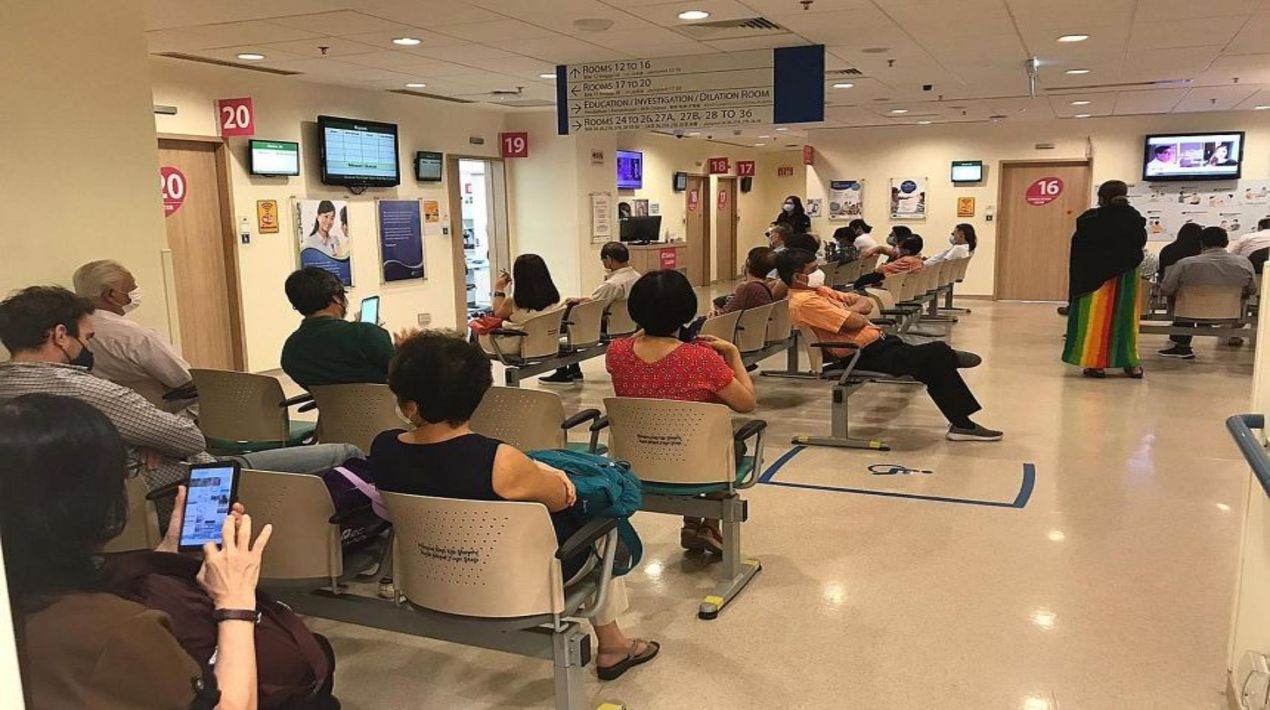
The Singapore National Eye Centre (SNEC), which is under Singapore’s largest public healthcare group SingHealth, will roll out a machine-learning solution called the Appointment Scheduling Optimiser (ASO) in the fourth quarter of this year.
Developed by Singapore-based information, communications and technology company NCS, the ASO will eventually be deployed across all SingHealth institutions, which include polyclinics, hospitals, and speciality centres.
Per news reports, SingHealth said that waiting times at SNEC can stretch to 45 minutes on busy days thus strengthening the need to make the appointments in clinics more streamlined. The objective is to be a smart eye hospital.
At SNEC, patients typically must take several tests before seeing the doctor. But now, appointments are given on a first-come, first-served basis and do not consider the preceding tests. For example, this means that a patient who needs only one test may be scheduled behind a patient who needs multiple tests, causing a bottleneck and increasing waiting times for the other patients.
The ASO will consider the resources available, as well as all the various tests that patients will have to take and churn out the best possible schedule with minimal waiting times. While simulations of the ASO have shown that waiting times can be cut down to about 20 minutes, the presence of complex cases – which make up about 15 to 20% of all patients may cause this to vary as these patients often need more time. The SNEC had tried to increase its manpower, but the long waiting times persisted.
Mr Howie Sim, vice-president of healthcare and the transport client service unit at NCS, said it would not be possible for an employee to attempt what the ASO can do as there were too many variables, such as the sequence of the tests, for the employee to be able to find an optimal solution.
Over time, the ASO can pick up patterns from the data such as the need to allocate a longer time for a particular profile of patients, such as the elderly. Mr Sim noted that this artificial intelligence technology has been around for decades, but traditionally it has been applied more to sectors such as manufacturing that require clockwork-like precision. He added that the adoption of such technology to drive innovation in healthcare has made headway in recent years.
SingHealth hopes that with an optimised schedule, manpower needs will be better allocated in SNEC. For example, staff can be deployed based on the ASO’s overview of when crowds will peak at the SNEC. The institution will also have a better idea of demand and supply that allows them to plan for the manpower much better because they will be able to anticipate the workload and distribute them evenly.
OpenGov Asia recently interviewed Mr Sim. He is convinced that COVID-19 has accelerated the adoption of AI in the healthcare space. Before the pandemic, the sector was predominantly service-oriented with a lot of people-to-people interaction. For better or for worse, COVID-19 disrupted that human-to-human interaction; and with fears over the infection, segregation and distancing became the norm.
The introduction of AI has not come without any concerns from the healthcare community. A common fear is that automation and robots will replace humans. People are concerned about their relevance and need – in short, they fear losing their jobs. Howie allayed these fears, saying that it’s a perspective issue. He feels that the workload of nurses increases, but resources are finite, so they need something to augment them. Thinking should be around how to manage staffing in such a manner that AI and/or automation become complementary to the existing workforce.
The question then is how to maintain a set of human resources, established around an AI/automation strategy, that can be augmented when necessary. Essentially this creates a more stable employee model where staff can be ramped up when needed and then scaled down after the crises have passed.
AI has progressed to a point where it is complementary to both assessment and analytical work, opines Howie, “There’s no better time to democratise AI to the health care professionals.”
















